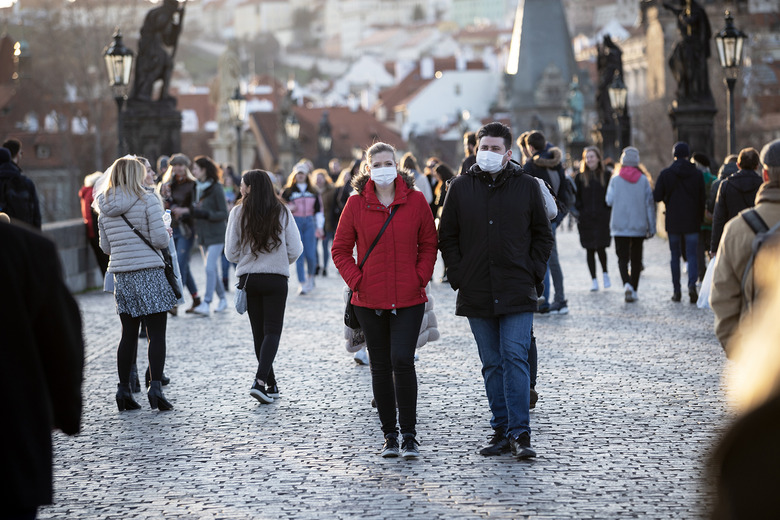We're Not Getting A Coronavirus Vaccine Before The Election
- The company making the only coronavirus vaccine with a theoretical chance of being approved before the US presidential election made it clear such a timeline is unfeasible.
- Pfizer CEO Albert Bourla said his company might have the efficacy data this month, but the crucial safety data will not be available until the third week of November.
- It's not enough for a vaccine to work; it also has to be safe. FDA's strict approval guidelines will make it impossible for Pfizer to seek authorization before the election.
Dr. Anthony Fauci has said a few times in recent days that the earliest results for COVID-19 vaccine trials will be ready in November or December, adding that some people might be inoculated by the end of the year. Experts from the World Health Organization echoed those remarks in their own statements about coronavirus vaccine research, going even further than that to say that healthy young individuals might not get access to vaccines earlier than 2022.
The current progress on the vaccine front gives everyone hope that at least one of the hundreds of candidates can block the infection and offer immunity, no matter how long that protection might last. Preventing severe COVID-19 might also be a satisfactory outcome from vaccination campaigns. Still, vaccines won't eradicate the illness, and the first ones won't bring back life to normal. People will still need to observe safety precautions for at least a year, in addition to getting vaccines.
That said, it seems like there's no chance for any experimental drugs of the several frontrunners to receive emergency use authorization before the presidential election. However, one of the drugs might still release efficacy data this month.
The most advanced vaccine candidates when it comes to research progress in North America, Europe, and other regions are AstraZeneca/Oxford, Moderna, Pfizer/BioNTech. Johnsons & Johnson can also make that list, given that it started its own Phase 3 trial, and the vaccine comes as a single-dose inoculation, compared to the other ones.
But only one of those three still stood a theoretical chance of seeking emergency authorization before the November 3rd presidential election. The AstraZeneca trial is still on pause in the US following the early September safety incident. J&J paused its own trial a few days ago to investigate unexplained side effects in a volunteer. And Moderna went on record to say that it won't be able to seek any approvals earlier than November.
The FDA's renewed regulations include a two-month observation period to assess the safety of all patients. The guidelines were developed recently and are supposed to reassure the public that vaccines won't be fast-tracked for political gains. Given that three of the four vaccine candidates come as a two-dose treatment, and volunteers get the drug or placebo shots a few weeks apart, it's unlikely for any of these drugs to meet the safety guidelines.
Pfizer CEO Albert Bourla published a letter on the company's website to explain the process for applying for an emergency use authorization for the vaccine, making it clear to the public that approval can't be obtained before the elections.
"There are three key areas where, as with all vaccines, we must demonstrate success in order to seek approval for public use," the CEO wrote. "First, the vaccine must be proven effective, meaning it can help prevent COVID-19 disease in at least a majority of vaccinated patients. Second and equally important, the vaccine must be proven safe, with robust safety data generated from thousands of patients. And finally, we must demonstrate that the vaccine can be consistently manufactured at the highest quality standards."
Bourla explained that Pfizer might indeed have the final effectiveness data by the end of October. "To do so, we must accumulate a certain number of COVID-19 cases in our trial to compare the effectiveness of the vaccine in vaccinated individuals to those who received a placebo. Since we must wait for a certain number of cases to occur, this data may come earlier or later based on changes in the infection rates," he said.
Pfizer is blinded to who receives the actual drug and the placebo, so it will be an independent committee that will review the complete data and deliver the conclusions. "Pfizer will continue running the trial through its final analysis point even if it is declared effective at an earlier stage. In the spirit of candor, we will share any conclusive readout (positive or negative) with the public as soon as practical, usually a few days after the independent scientists notify us," the CEO said.
Even if the drug can block the COVID-19 infection, it is not enough for Pfizer to seek emergency use authorization. Citing the FDA guidelines, the CEO said that "based on our current trial enrollment and dosing pace, we estimate we will reach this milestone in the third week of November."
"Safety is, and will remain, our number one priority, and we will continue monitoring and reporting safety data for all trial participants for two years," Bourla noted.
Pfizer will also have to prove it can manufacture the vaccine at high-quality standards, and that data will also be available before the safety milestone is reached.
"So let me be clear, assuming positive data, Pfizer will apply for Emergency Authorization Use in the US soon after the safety milestone is achieved in the third week of November," Bourla said. All the data contained in our US application would be reviewed not only by the FDA's own scientists but also by an external panel of independent experts at a publicly held meeting convened by the agency."
